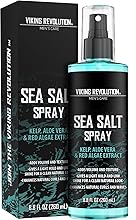
How to better protect yourself from the health effects of wildfire smoke
CBC
As climate change intensifies and prolongs the hot, dry conditions for wildfires to thrive, Canadians can expect more summers of smoky skies. With that smoke, come serious potential health consequences for everyone, including children, older Canadians and people with pre-existing health conditions.
CBC News spoke to several health and climate experts who say that with proper planning, those risks can be mitigated. But it requires action before, during and even after the smoke clears.
A first step, say experts, can be to check the air quality forecast before stepping out the door.
"What you can do is watch the AQHI, the Air Quality Health Index, and think about modifying your activity," advised Dr. Samantha Green, a family physician at Unity Health Toronto and incoming president of the Canadian Association of Physicians for the Environment.
Developed in partnership with Health Canada and the provinces, the AQHI updates twice a day and provides a risk rating on a scale of one to 10+ for many Canadian cities over today, tomorrow and the next day. One to three represents a low health risk, four to six is a moderate risk and seven to 10 is considered high risk. Very high pollution levels are considered "10+".
"So perhaps don't go for that outdoor run if the AQHI is high," Green said.
The tool can be particularly useful for certain at-risk populations who may not be able to leave the house if air quality is too poor, allowing them to plan ahead.
"If you are someone with an underlying health condition such as asthma, then you should pay even more attention to that AQHI," Green said. "Think about even asking your doctor for a renewal of your inhaler in advance of wildfire smoke."
The most common advice during days of poor air quality is to stay indoors if possible, closing any potential ways smoke might enter your home.
"What we're trying to do is encourage people to be cautious and to stay inside with the windows closed, with your ventilation running if you can," advised Dr. Courtney Howard, an emergency room physician in Yellowknife, who spoke to CBC News from Oxford, U.K.
Ventilation, in this case, can come in the form of air-cleaning devices that use high-efficiency air filters. While not all air filters are equally effective, they don't need to be expensive to work, says Jeff Brook, an associate professor who specializes in pollution, climate and health at the University of Toronto's Dalla Lana School of Public Health.
"Even simple do-it-yourself air cleaners can make a difference," said Brook, "You can buy a box fan and a good MERV filter at Home Depot and assemble it. There's instructions online to make your own home indoor air cleaner."
Staying put for days may not always be realistic, Howard acknowledges, comparing the difficulty to the isolation felt during the earlier years of COVID. But a pandemic-type solution still works for anyone who needs to venture out on smoky days.
"One of the things you can do is get the N95 masks that are well fitted," Howard said. "You can tell that it fits well [because] when you breathe in, the mask kind of sucks into your face. If you can feel the air coming around the sides, then it's not a good fit or you maybe need to mould it more to your face."





















 Run 3 Space | Play Space Running Game
Run 3 Space | Play Space Running Game Traffic Jam 3D | Online Racing Game
Traffic Jam 3D | Online Racing Game Duck Hunt | Play Old Classic Game
Duck Hunt | Play Old Classic Game











